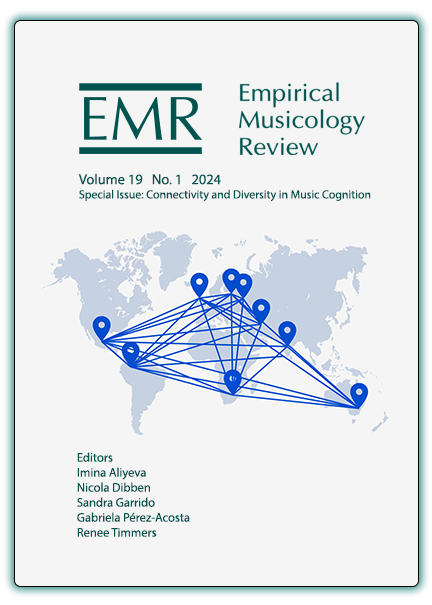Embodiment Consciousness in Music Performance Pedagogy
DOI:
https://doi.org/10.18061/emr.v19i1.9571Keywords:
music performance pedagogy, expert teacher, embodied cognitionAbstract
The acquisition of expertise in music performance and its pedagogy, depends on, beyond specific musical skills, employing resources from other fields of knowledge and considering sensory, motor, and affective capacities at each step of the music learning process. We studied the teaching practices of three expert clarinet teachers to investigate their didactic procedures, evaluating how those practices could be related to their students’ high levels of performance. The method gathered data from a “protocol joint analysis” and semi-structured interviews with teachers and their students. Data analysis revealed a particular set of pedagogical skills observed in the didactic procedures of these expert teachers. These teaching strategies were common to all three case studies and revealed themselves as a last didactic resource to overcome complex problems at the highest level of proficiency in musical interpretation. We call that pedagogical expertise field Embodiment Consciousness in Music Performance. This field of competence describes the systematic didactic use of metaphor to access performers’ sensorimotor and affective memories, whose semantic contents can thereby be accessed to support performance actions.
Published
How to Cite
Issue
Section
License
Copyright (c) 2024 Anderson César Alves, Marcos Nogueira

This work is licensed under a Creative Commons Attribution-NonCommercial 4.0 International License.


